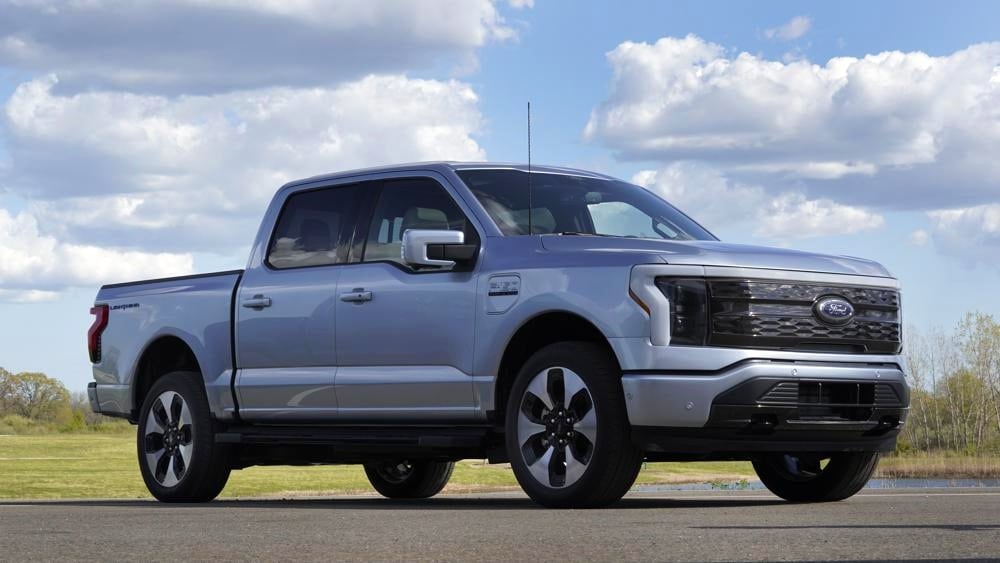Changes in Store for the Massachusetts State EV Rebate Program
 If you’re looking for an electric car, you are likely looking for rebates and incentives to help you make the switch too. We have a whole page on our website to explain the federal tax credit (up to $7,500) and Massachusetts state rebate (MOR-EV) for electric vehicles (EVs). This year, there are some exciting changes on the horizon regarding state EV incentives.
If you’re looking for an electric car, you are likely looking for rebates and incentives to help you make the switch too. We have a whole page on our website to explain the federal tax credit (up to $7,500) and Massachusetts state rebate (MOR-EV) for electric vehicles (EVs). This year, there are some exciting changes on the horizon regarding state EV incentives.
What is MOR-EV?
Massachusetts has had an EV rebate program called MOR-EV in place since 2014. Funded through proceeds from the Regional Greenhouse Gas Initiative (RGGI), MOR-EV has thus far issued more than 24,000 rebates for plug-in hybrids and fully electric vehicles. (That means it’s influenced about half of the EVs on our roads today.) Though program design has varied over the years, MOR-EV currently offers $2,500 for fully electric vehicles with a final sales price under $50,000 and $1,500 for plug-in hybrids with at least 25 miles of electric range that meet the same price requirement. As of right now, it will only be in place through the end of June 2022. However, both the executive and legislative branches of state government are working on plans for program extension and expansion.
Proposed Changes from DOER
MOR-EV is housed within the Department of Energy Resources (DOER), which recently published a cost-effectiveness study on the program. That report came out in March and found that the program has been cost-effective overall and that the cost per ton of avoided carbon dioxide emissions through MOR-EV is comparable to other transportation sector programs across the country. (For a summary of the findings, click here.) DOER then took the results of this analysis to propose changes for a “next phase” of the MOR-EV program in addition to discussing some further opportunities to consider. Specifically, DOER proposes to:
- Enable a point-of-sale rebate by October 2022.
- Reduce the vehicle price cap by $2,500 to $47,500 by fall 2022 and then periodically review for further reductions.
- Limit the rebate to battery-electric vehicles (BEVs), excluding plug-in hybrids (PHEVs).
Green Energy Consumers submitted comments in support of these changes (with some caveats). You can read the full letter here, but a topline summary of our comments would be:
- Since not all vehicle purchasers are able to pay $2,500 upfront with the understanding that they will be reimbursed within three months, making the rebate point-of-sale will make it more accessible to more drivers. In fact, offering the rebate at the point of sale is something we have long advocated for along with the Zero Emission Vehicle (ZEV) coalition.
- On the vehicle price cap, we urged DOER to proceed with caution. The supply chain issues of the last few years have greatly increased the upfront cost of all vehicles, new and used, gas-powered, and electric. Many of the most available EV models are right around the current $50,000 price cap. But we do agree that there should be a price cap. Folks who can buy an expensive car should be able to find an EV they can afford without a rebate.
- Finally, on BEVs, we agree with DOER’s recommendation. Though PHEVs are an excellent stepping-stone to BEVs for many consumers, given limited public funds, preference should be given to vehicles with the greatest emissions impact: BEVs.
Our letter also touched on other program design elements, such as the need for long-term financial sustainability, implementing incentive “adders” for the most polluting vehicles, education campaigns, fleets, and inter-agency coordination, as well as our comments on some gaps in DOER’s cost-effectiveness study. You can read more on both fronts here.
Senate Climate Bill
Meanwhile, while DOER was reviewing MOR-EV and issuing these program changes, the Massachusetts Senate was hard at work on its big climate bill, which passed the Senate in April. Concerning purchase incentives for EVs specifically, the Senate climate bill sets up an $100 million “EV Adoption Incentive Trust Fund” to issue direct consumer incentives for the purchase of EVs. The rebates are to be available for new and used EVs, for individual and corporate purchases, and for light-duty as well as medium- and heavy-duty vehicles. The bill maintains the existing $50,000 price cap for light-duty vehicles and trucks, increases the rebate from the current $2,500 to $3,500-$5,000 and offers higher rebates for individuals trading in gas-powered cars. Two amendments extend the bill even further: Amendment #10 calls for linguistically diverse and culturally competent outreach and #27 adds an extra $1,500 to the consumer rebate for low- and moderate-income consumers.
Green Energy Consumers was glad to see all of these provisions pass $100 million targeted to affordable electric cars and trucks is a good policy. But we do have to point out that, by itself, this funding will support less than 30,000 EVs. The latest draft of the Clean Energy and Climate Plan calls for 900,000 EVs by 2030. So let’s get the new MOR-EV program up and running with the understanding that we will need other policies beyond consumer rebates to reach the larger goal.
Regardless, there are a couple more steps before this bill gets over the finish line! This brings us to the House.
 Ford Lightning Pickup Truck
Ford Lightning Pickup Truck
House Efforts
Earlier this spring, before the Senate climate bill, the House passed a big clean energy bill as well. That bill had a much narrower scope than the Senate’s climate bill and does not address transportation. Between now and the end of the legislative session in July, the House and Senate will set up a conference committee to reconcile their two approaches. We and other advocates will be urging this committee to include the Senate climate bill’s provisions on EV rebates (as well as many other transportation provisions!) in the final bill.
The conference committee has yet to start its work, but so far we have some good reasons to be hopeful that clean transportation elements will survive the reconciliation process. For example, the House passed its version of the budget on April 27, and thanks to an amendment filed by Representative Jeffrey Roy, that included a $27 million extension of MOR-EV until June 30, 2023, as part of the consolidated amendment “F”.
One change we do hope to see come out of this process is a lifting of the $50,000 price cap and $5,000 maximum for medium- and heavy-duty EVs (MHDVs) that the Senate included in its climate bill. When it set up MOR-EV Truck, DOER put a lot of thought into the rebate structure for MHDVs. Implementing these limitations would effectively exclude most MHDVs from eligibility and/or make the rebate too small to be useful to fleet operators in the current market. Since MHDVs have an outsized impact in terms of both greenhouse gas emissions and public health, we think this would be a mistake.

Intelligent Labor & Moving’s Electric Truck (Medford, MA)
I want to get an EV this year. What does this all mean for me?
If you are a Massachusetts resident looking to get an EV sometime in 2022, here’s the situation:
- From now until the end of June 2022, you can get $2,500 for a new BEV and $1,500 for a new PHEV if they are under $50,000 and have at least 25 miles of electric range.
- However, in “early 2022”, DOER is expected to reduce the price cap for eligibility and limit MOR-EV to BEVs. Depending on what vehicle(s) you’re considering, these may influence your timeline!
- After June 30, 2022, the MOR-EV program will hopefully be extended and expanded through some combination of the budget and/or a large climate bill.
- Hopefully, by fall 2022, MOR-EV will have a point-of-sale option, be available for used cars, and offer the “adders” in the Senate climate bill. It might take a while for the state to figure out these new features.
We know that this level of uncertainty is not helpful when it comes to making large purchases! We will keep doing our best to communicate to legislators and members of the executive branch that consistent, sustainably-funded incentives for EV adoption will be critical to driving EV adoption forward while we wait for battery prices to fall to the point where EVs reach cost-parity with gas-powered cars. For updates on opportunities to join us in this advocacy, subscribe to this blog.
P.S. There are two more things we have to say. First, we hope that the final climate bill addresses clean transportation comprehensively and holistically. More on that here. Secondly, the Massachusetts Department of Environmental Protection recently announced new funding for the MassEVIP incentive program for fleets and charging at multi-unit dwellings, campuses, and public access locations. Learn more about all that here!
Related Posts
Can Massachusetts Make EV Charging even More Affordable?
We’re big advocates for incentivizing electric vehicle (EV) drivers to charge their cars off-peakby offering...
Comments